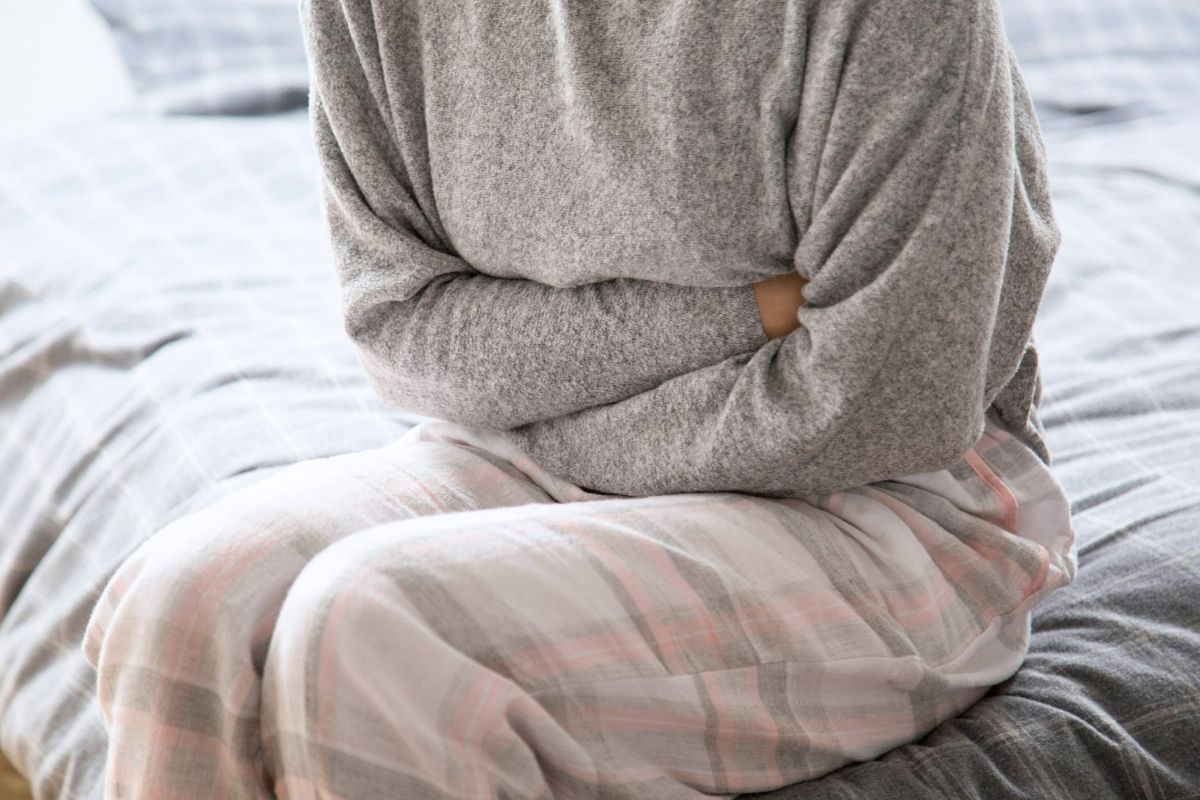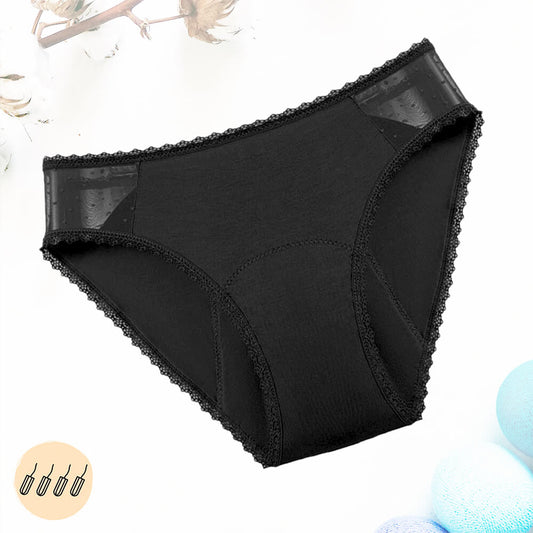During the premenstrual period, many women experience changes in their body that can cause some discomfort. A swollen belly before period is one of those symptoms that affects many of them. In this article, we will explore the main causes behind this phenomenon and some of the solutions to alleviate the discomfort.
Premenstrual syndrome and a swollen belly before your period

Premenstrual syndrome (PMS) encompasses a range of physical and emotional symptoms that usually appear one to two weeks before your period. These signs include fatigue, mood swings and irritability, but also effects on the body such as tender and painful breasts, or a swollen and sometimes even painful stomach. The hormonal changes that occur during this phase are responsible for these manifestations.
Hormonal fluctuations
Before menstruation, the rate ofestrogen and progesterone begins to decrease, thus causing the walls of theuterus. This change in the muscular tissues of the uterus can in turn lead to water retention and gas buildup in the intestine, which ultimately gives rise to a swollen and bloated belly.
Water retention
Swollen belly before period can also be caused by water retention. The body tends to store more water during this period due to hormonal variations which increase the filtration of fluids in the tissues. This phenomenon is mainly attributed to the action of the hormone aldosterone, the production of which increases before menstruation.
Digestive problems before menstruation linked to PMS
In addition to the bloated belly linked to hormonal changes and water retention, there are also dietary and digestive factors that can make this situation worse.
Stress and digestion
Premenstrual syndrome can cause high levels of stress in some women, which negatively impacts their digestive system. Stress can slow down the motility (movement) of theintestine, thus causing an accumulation of gas in the body and an even more swollen stomach before the period.
Food
The choice of foods you eat during the premenstrual period can also influence your digestion. Certain foods tend to promote gas formation in the intestine, while others are likely to cause bloating or water retention. It is therefore recommended to monitor your diet before your period in order to minimize these effects.
- Foods high in sodium : salt promotes water retention and can worsen abdominal swelling. Be sure to limit your consumption of processed products, prepared meals and salty snacks.
- Foods rich in insoluble fiber : they can cause gas in the intestine and intensify bloating. Examples include cabbage, broccoli and even beans. You could instead opt for cooked vegetables, which are more easily digested.
- Alcohol and soft drinks : Both types of drinks are known to cause gas buildup and increase feelings of a bloated stomach. Favor water and infusions to hydrate yourself during this period.
How to relieve a swollen stomach before your period?

To alleviate the discomfort associated with a swollen stomach before your period, here are some tips you can put into practice:
- Take up regular physical activity : practicing sports, such as walking, cycling or yoga, helps stimulate intestinal transit and reduce bloating.
- Choose a balanced diet : favor foods rich in soluble fiber (such as apples, carrots and oats) and limit the consumption of salt, alcohol and carbonated drinks.
- Massage your belly : Performing circular movements on your abdomen can help stimulate digestion and release accumulated gas.
- Try digestive infusions : certain plants such as fennel, peppermint or ginger are renowned for their digestive and antispasmodic properties.
Finally, do not hesitate to consult a doctor if your swollen belly before your period is accompanied by intense pain, abnormal discharge or significant changes in menstruation. Medical follow-up can help you identify and treat the potential causes of these symptoms.




